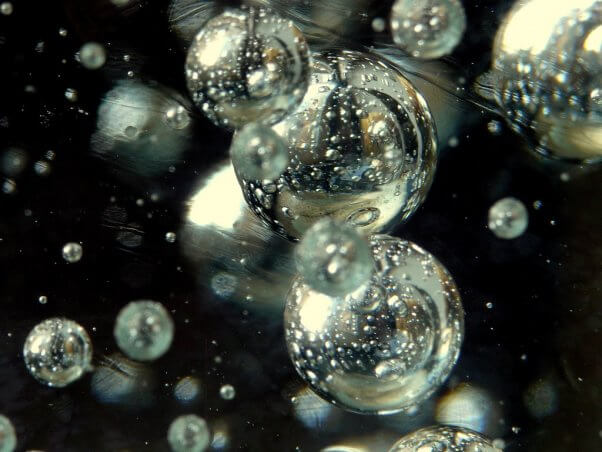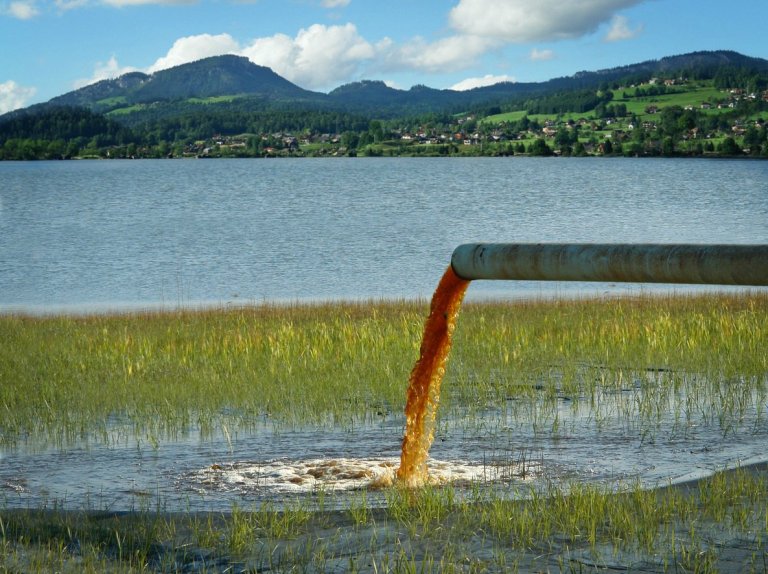Is fish good for you? Seafood sellers have been hard at work trying to convince us that, unlike other fatty, chemical-laden meats, fish flesh somehow qualifies as a health food. But on closer examination, that claim is pretty fishy. Here are seven good reasons why the “healthy fish” myth is all wet.
- The Food Pyramid Doesn’t Include Mercury
As fish live and eat in our chemical-laden waterways, mercury accumulates in their systems. And people who eat those fish may as well bite into a thermometer. Mercury poisoning has been known to cause nervous system disorders and reproductive issues as well as developmental problems in children and unborn babies. And many of the fish with the highest concentrations of mercury are the same ones people are devouring by the plateful: walleye, king mackerel, marlin, bluefish, shark, swordfish, wild sturgeon, opah, orange roughy, Chilean sea bass, blue crab, lingcod, Spanish mackerel, spotted seatrout, wahoo, grouper, snapper, halibut, tilefish, rockfish, sablefish, and tuna (including blackfin, bluefin, bigeye, albacore, and yellowfin varieties).


- Not the Alpha for Omegas
Much like the milk/calcium myth (which has been debunked) that advertisers sold to Americans, the seafood industry’s campaign to convince people that they need fish flesh for the omega-3 fatty acids that it contains has been successful. But the Environmental Working Group found that people who ate the recommended amounts of many commonly consumed types of fish were ingesting dangerous amounts of mercury while getting relatively small amounts of omega-3s. Fishes such as catfish, cod, pollock, and tilapia (as well as clams, crabs, oysters, scallops, and shrimp) contain low levels of omega-3s but plenty of harmful chemicals. Algal oil is a great source of DHA and EPA omega-3s, and it’s often an ingredient in faux fish.


- Fish Flesh Can Cause Your Arteries to Build Their Own Hoover Dam
If you’re eating fish for omega-3s because you want a healthy heart, you’re doing your body more harm than good. Between 15 and 30 percent of the fat in fish is saturated, which makes our livers produce more artery-clogging cholesterol. Not exactly what seafood-eaters need, since 6 ounces of shrimp, for instance, pack 322 milligrams of cholesterol.
- So Trashy
If you wouldn’t walk down to your local river, lake, or ocean, then dip your glass in it and take a big gulp, is it really a good idea to eat the animals who live in that same water? Sadly, our waterways are polluted with raw sewage, runoff from animal agriculture, harmful chemicals, microplastics, and trash. Not quite my idea of a four-star meal.


- You Down With PCBs?
Polychlorinated biphenyls (PCBs) are highly toxic industrial chemicals that have been banned in the U.S. since 1977. They’re slow to break down, and they accumulate in the sediment at the bottom of lakes, rivers, and coastal areas and in the tissues of fish who live and eat there. The Environmental Protection Agency says that contaminated fish are a persistent source of PCBs in the human diet. These chemicals have been shown to damage the circulatory, nervous, immune, endocrine, and digestive systems.
- Hooked on Drugs
Because we’ve depleted the oceans’ fish populations, many fish, such as salmon, are farmed. Thousands of fish are crammed into tiny pens, so water stays dirty, and diseases and parasites spread. To try to kill them, farmers add antibiotics and pesticides to the water, which the fish ingest and absorb—and pass on to those who eat them.


- Parasitic Worms and Flesh-Eating Bacteria, Mmmm
Want to chow down on parasitic worms? Biologists in Denmark found that more than 90 percent of certain types of wild fish were infected with nematode larvae (aka “roundworms”). Researchers in Alaska found that all the fresh-caught salmon they examined had nematode infestations, and a quick YouTube search will turn up plenty of videos from people who brought home worm-riddled salmon from the grocery store. Others have even contracted flesh-eating bacteria from uncooked fish in sushi, which can be fatal.
So, I went to the Ralph"s on Highland and Day Creek today and this happened.
Posted by Angela Cordero on Wednesday, July 6, 2016
*****
But What if You Enjoy the Taste of Seafood?
That’s an easy one. Innovative companies like Gardein, New Wave Foods, Ocean Hugger Foods, Good Catch, and others are creating fool-your-friends vegan versions of fish fillets, crab cakes, coconut shrimp, tuna, scallops, and even caviar. See our list of PETA staffer–tested delectable faux-seafood products here.
[embedded content]
For more vegan fish #FoodPorn, check out our must-have recipes and favorite restaurant dishes:
Source: https://www.peta.org/living/food/is-fish-good-for-you-heres-why-not/
No comments:
Post a Comment